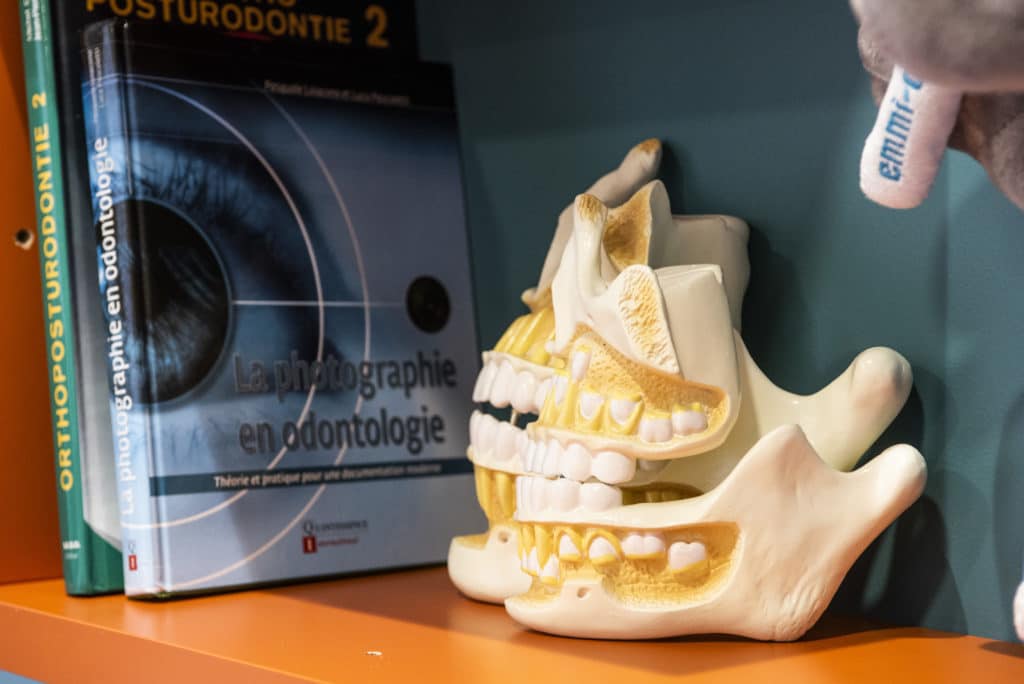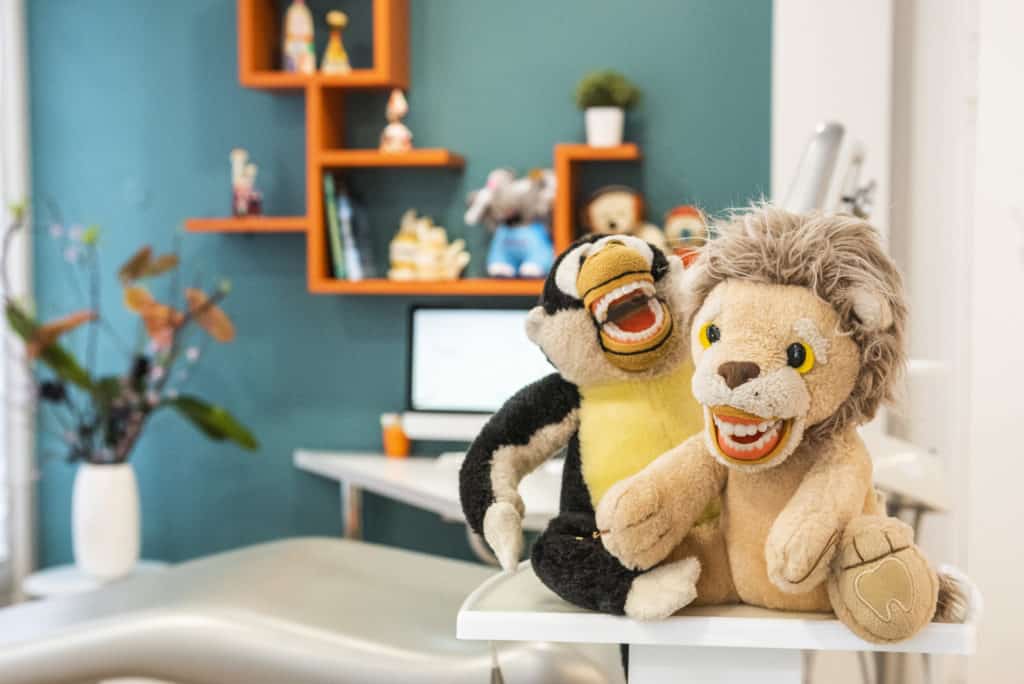The office is closed between July 26 and August 23 included. Until we see you again in the fall, we wish you a wonderful sunny vacation!
The office is closed for the end of year vacations between December 18th and January 6th included.

Contact Dr. Adriana's team immediately at:
We will see your child as soon as possible,
generally the same day.

Weekdays: 8:30 a.m. - 7:30 p.m.
Saturdays: 8:30 a.m. - 3:30 p.m.
The speed at which dental emergencies are treated can sometimes mean saving a tooth. That's why, in the case of a child's dental emergency, we make every effort to receive you in our office that very day.
Please contact Dr. Agachi's team as quickly as possible in the case of a:
Consult your child's dentist within 24 hours.
Physical trauma can cause permanent teeth to break:
Physical trauma can cause your child to lose a permanent tooth. If this happens, it's important to remain calm: it's often possible to reimplant the lost tooth!
A tooth that changes color (gray, pink) indicates that the vitality of the tooth has been compromised. This can happen, by way of example, after a traumatism. Consult a pediatric dentist as soon as possible and they will inform you of what treatment to follow.
If your child bit themselves or has cut their tongue, cheek, or lips:
If your child has a very bad toothache:
Abscesses can appear after a tooth has died and take the form of a whiteish ball on the gums, which may or may not be painful depending on how far advanced the cavity region is.
Consult your pediatric dentist, who can prescribe antibiotics, analgesics, antiseptics, as well as inform you of what treatment to follow according to the condition of the tooth and the child's age.
Canker sores are common and painful. To reduce your child's discomfort:
If your child is suffering from canker sores for the first time, the cause may be herpes. The symptoms are as follows :
Treatment:
Whether your child suffers from toothache, bad pains, fever, physical trauma, or a variety of other factors, recognizing the signs of pediatric dental emergencies will allow you to react rapidly and maximize healing.
The information below will guide you through how to evaluate the seriousness of your child’s situation as well as the necessary steps and techniques to provide relief.
In general, pediatric dental emergencies generally constitute any situation where it’s necessary to stop bleeding, treat bad pain, or repair damaged teeth.
When should I call the dentist?
If your child is complaining about pain, or if your child displays the symptoms of dental emergency, you need to call a pediatric dentist.
And this true even if you are unable to identify the exact cause of your child’s condition.
Here are some of the most common situations that constitute a children’s dental emergency and require consulting an emergency specialist.
If your child complains about bad pain in or around the teeth, mouth, or jaws, this can indicate a dental emergency.
Start by washing the sore area by having your child rinse their mouth with lukewarm water. Then wash the teeth thoroughly, flossing if necessary. Contact a practitioner before giving your child medication.
These pains can be caused by:
Dental trauma often results from falls or shocks that affect the mouth area.
In the case that a child has lost or broken a baby tooth, rinse their mouth with lukewarm water, and apply cold to the sore area.
If the trauma has affected a permanent tooth, search for and collect the tooth fragments. Preserve them in milk or saline to increase the chances that the pediatric dentist can repair the tooth in the hours following the trauma.
After experiencing physical trauma, it's also possible for a tooth to change color to a grey or pink tint.
This means that the trauma has affected the tooth's vitality.
It's possible that children can suffer from bites or cuts in or around the mouth (the tongue, lips, cheeks, gums).
In this case, apply ice, then a compress to stop any bleeding. If bleeding persists for more than 15 minutes, you need to seek emergency care.
With adolescents and preadolescents, wounds can arise from broken dental apparatus. If possible, attempt to remove the apparatus.
If not, place a cotton ball, orthodontic wax, chewing gum, or a compress on the broken part.
Baby teeth generally make their first appearance between 6 months - 1 year of age. Baby dental emergencies are rare enough, but still occur.
Diagnosing baby dental emergencies is more difficult than with children, because babies cannot elaborate their symptoms, and it remains up to the parents to monitor their child’s symptoms and other potential problems.
The principal dental problems that babies encounter are delayed teething and early childhood cavities (so named because the sugar contained in baby milk can degrade teeth if the mouth isn't washed after each meal).
If you detect symptoms of cavities or notice that certain symptoms of teething (fever, drooling, decreased eating/sleeping, crying, swollen gums, etc.) persist more than normal, notify your pediatric dentist.
Dr. Agachi’s office treats all types of children’s dental emergencies in her Paris office. If unsure, don’t hesitate to call. Our team will take the time to answer your questions regarding your child’s symptoms.
We’ll also advise you on the best steps to take and what medications you can, or cannot, administer while awaiting your dental visit.
According to the level of urgence, your child's visit will be scheduled as early as possible at our Paris office.
About Us
Consultations are by appointment only. In the case of an emergency, please contact the dental office.
Information & Recommendations
Pedodontist: Doctor Adriana Agachi Adeli: 75 4 715431 | RPPS: 10100340396